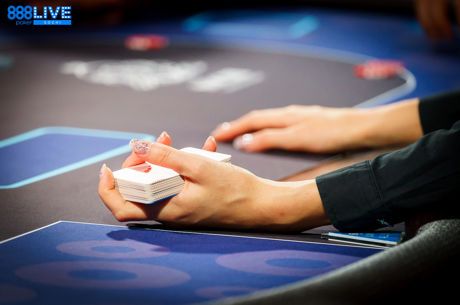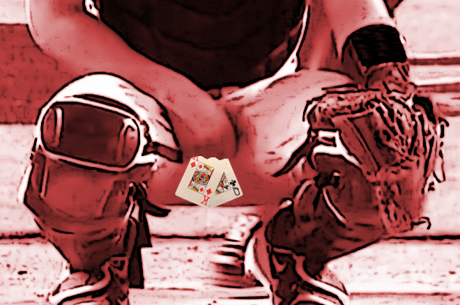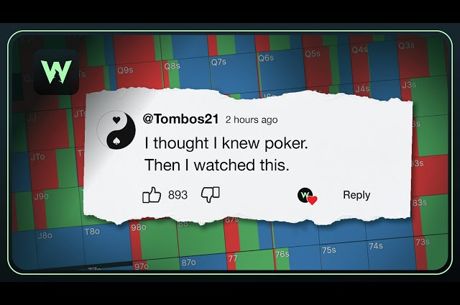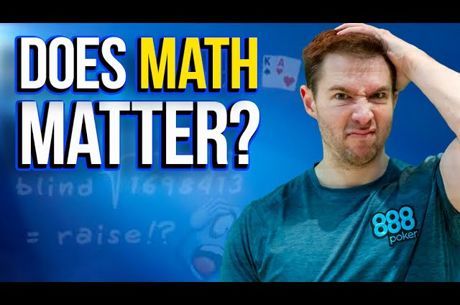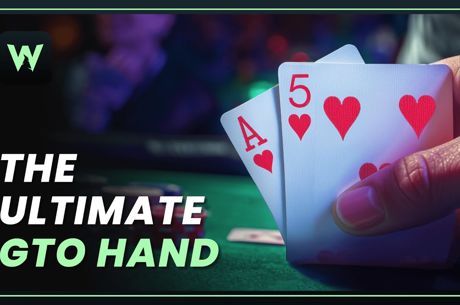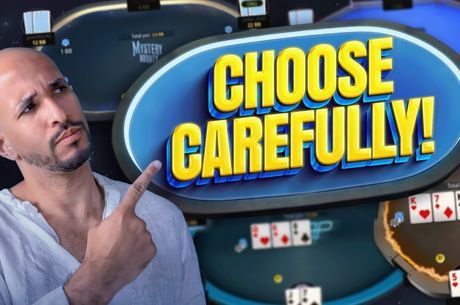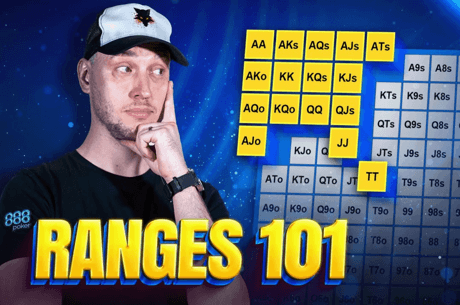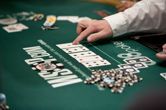'Hand Reading' Versus 'Hand Guessing'
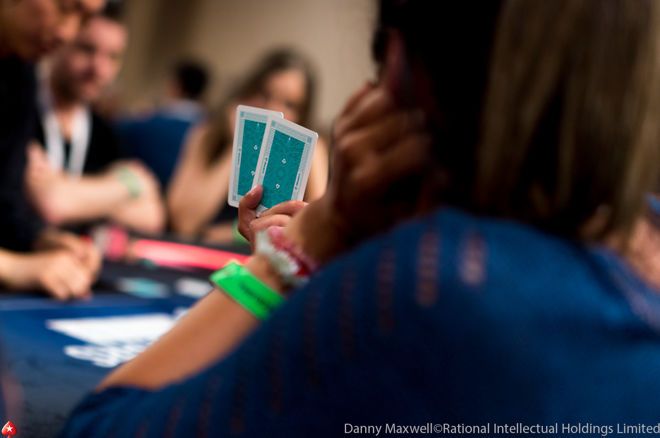
Poker can be a challenging game, particularly when playing in live cash games or tournaments among players capable of a wide variety of preflop playing styles, often with all kinds of randomness built into their decision-making. At least in many low-stakes no-limit hold'em tournaments, the key is not to know what hand your opponents might have, but rather what kinds of hands they likely hold.
Do they have a hand that is the effective nuts, that they can play for stacks? Or do they have a vulnerable value betting hand? Or a hand with some showdown value? Or air with which they might bluff?
These kind of categories are far more important than the specifics of their exact holding. And this comes into far sharper relief when playing live poker, particularly before reads form. Let's look at an example from a low-stakes tournament of this type of hand reading by category being employed against a new opponent.
From Preflop to River
The blinds are 100/200 with a 200 big blind ante when a tighter player in early position raises to 600. A player who is new to the table (and to the tournament, as he just registered) calls on the button, and it folds to us in the big blind with 9♠6♠. We like the price closing the action and call. Stacks began 10,000 deep and that is how they effectively stand.
The flop comes 9♥7♣2♦. We check to the initial raiser who decides against continuation betting. The new player on the button then fires 800 into a pot of 2,100. We flat-call, our hand far too weak to raise. The initial raiser folds.
The turn is the 5♥ bringing a flush draw and giving us an inside straight draw, although since it will also complete Jx10x if it comes in, our straight draw is not exactly worth much in terms of equity realization or implied odds. We've improved just enough that we can probably muster up a call if we face another less than half-pot bet. Fortunately after we check, our opponent checks behind.
The river is the 3♣, meaning the flush draw bricked out.
What Kinds of Hands Can He Have?
When you try to put your opponent on an exact hand, you are doing something I like to call hand guessing. Your guessing might be more educated than wild, but it is still not how you want to spend your precious time at the poker table mid-hand. By contrast, hand reading is an orderly and organized process very different from hand guessing.
Guessing grabs at facts and counterfactuals in order to identify hands your opponent could or could not have in a haphazard fashion. He didn't three-bet preflop? Can't have aces. Could he have ace-nine? No — he would have bet the turn. This is educated guessing, to be sure, but it is also like entering each individual point manually into a calculator when you could just input the entire function.
When we hand read we can look at a single action — say, in this case, the turn check back — and largely exclude entire classes of hands, namely hands that were value hands on the turn.
The completed board reads 9♥7♣2♦5♥3♣. After that turn check, the only way our opponent could have a value hand now is if he improved on the river — with 3x3x, Ax4x, or perhaps 5x3x-suited. These are rare holdings. For the purposes of hand reading, we will conclude it unlikely he has a value hand.
What about air? Well, we hold top pair with no kicker, so if those no-value hands are indeed in our opponent's range, we could check and catch them bluffing. This assumes two things — he needs to bluff and he is inclined to bluff.
A hand like Ax8x in an amateur's hands might just feel like it can check down, even though it is unlikely in reality to ever be good here at showdown. Meanwhile, a hand like Jx10x or 10x8x that needs to bluff might not be that inclined to do so. Those hands turned down the chance to bluff the turn. They need to realize that they have to bluff the river, but also to act upon it.
While Jx10x and 10x8x are exactly the type of hands that could bet flop, check turn, and bet river as a bluff, they are probably the only air hands that do so. For the most part bluffs that bluffed the flop gave up and are going to stay given up.
Deduce, Then Plan
This leaves us with the category of showdown hands. Our opponent looks like he has a hand worse than a pair of nines that can beat ace-high. Maybe he paired up with the five on the turn. Maybe he bet a pair of sevens on the flop. Maybe he has pocket eights. We do not actually need to know.
We know he will not bet these hands for us because this class of hands is looking to check behind and get to showdown. Since we have an overwhelming advantage versus this class of hands, we should value bet our top pair, no kicker.
Thus a plan was hatched. Hero in this hand bet 2,200 into 3,700. The button called and mucked after being shown the mighty 9♠6♠.
The key point here is understanding we didn't need to know our opponent's exact hand. And to recognize that the absence of that knowledge need not paralyze us.
Maybe he called our river bet with AxQx, putting us on Jx10x. Maybe he called with Kx7x. It is not important.
If he raised, we can go back to our reasoning that he either has 3x3x or Ax4x. But when he calls river with worse, we can reinforce to ourselves that the logic we used on the turn was correct.

